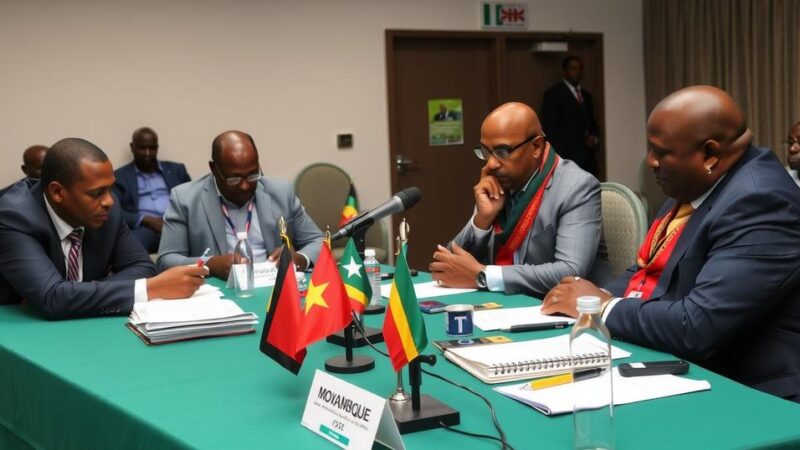The Chilean government has protested comments made by Argentine Economy Minister Luis Caputo, who labeled President Gabriel Boric a “Communist” leading Chile into peril. This fracas stems from deepening tensions between the two nations and highlights broader regional political disputes. Caputo’s remarks come amid a backdrop of historical accomplishments in reducing poverty in Chile and reflect ongoing critiques of leftist ideologies across Latin America.
The Chilean government, under President Gabriel Boric Font, has officially registered its discontent following remarks made by Argentine Economy Minister Luis Toto Caputo, who referred to President Boric as a “Communist” and asserted that he is leading his country into decline. The economic minister’s comments were made during a radio interview, prompting Chile’s Foreign Ministry to deliver a formal protest note to the Argentine ambassador in Santiago. In his remarks, Caputo framed the ongoing political situation in Chile against the backdrop of historical poverty alleviation achieved by the country, suggesting that it has regressed under its current leadership.
Caputo’s statements have exacerbated already strained bilateral relations, which have been under pressure since President Javier Milei’s inauguration in Argentina. This tension was further fueled by earlier comments from Argentina’s Minister of Security concerning alleged terrorist activities in Chile, which were later substantiated by the United States. Caputo also extended his criticism across the region, targeting Brazilian President Luiz Inácio Lula da Silva for his leftist policies and confronting local politicians in Argentina who attempted to pursue privatizations advocated by the Milei administration.
Chile has positioned itself historically as a leader in poverty alleviation within Latin America during the late 20th century. Hence, Caputo’s allegations regarding the country’s governance and its implications for national stability and societal progress have sparked significant backlash from Chilean officials. The raised tensions may have lasting implications for political and economic engagement between Chile and Argentina, especially amid rising critiques of leftist policies in the region.
The relations between Chile and Argentina have experienced a series of difficulties, particularly following the election of Javier Milei as President of Argentina. The political discourse surrounding governance and economic management has intensified, with officials on both sides making sharp critiques of each other’s administrations. This situation is reflective of broader regional debates regarding leftist politics, with countries like Brazil and Venezuela also featuring prominently in discussions about governance and economic strategy in Latin America.
The diplomatic rift between Chile and Argentina underscores the complexities of political relations in Latin America, particularly as governments navigate varied ideological landscapes. The remarks by Economy Minister Caputo have not only drawn a strong response from the Chilean government but also highlight ongoing regional debates regarding governance, economic stability, and the legacies of past administrations. As both countries proceed, the future of their bilateral relations will significantly impact regional dynamics.
Original Source: en.mercopress.com







